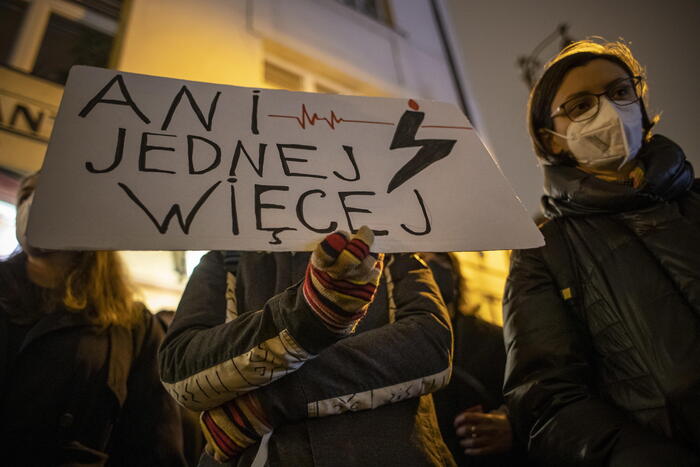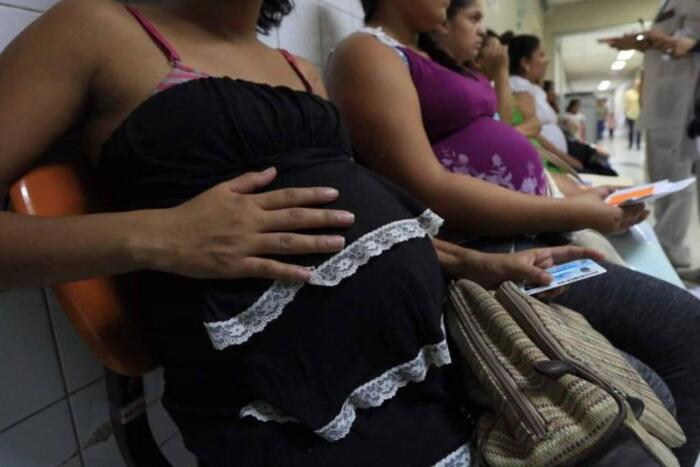This is the web version of Americanas, the EL PAÍS America newsletter that addresses news and ideas with a gender perspective.
To receive it every Sunday you can subscribe
at this link
.
The conservative wing of Peru has the same task between eyebrows: that a recently fertilized ovum have the same rights as a person;
specifically, those of the pregnant woman.
This Wednesday, the Congress of the Republic approved bill 785, with 70 votes in favor and 29 against, which recognizes that life begins at conception and not at birth and that a fetus is a beneficiary of the right to "the life, health, moral, mental and physical integrity, identity and free development and well-being”.
Although these acknowledgments were already partially granted in the Constitution and the Civil Code —as is also the case in countries such as El Salvador, Guatemala or the Dominican Republic—, the anti-rights arm of the Andean country is somewhat marked in the extremely polarized conversation about abortion. .
"They are generating confusion for women who want to access this service," explains Rossina Guerrero, director of programs at the Center for the Promotion and Defense of Sexual and Reproductive Rights, Promsex.
“It is the route of the fundamentalist groups to take away our agency.
This could be the first step to reverse the right to terminate a pregnancy."
The measure jeopardizes the scant progress in terms of sexual and reproductive rights in one of the most restrictive South American countries regarding the interruption of pregnancy, since it reopens a discussion already closed by international organizations that have expressed loud and clear that the rights of the fetus may not be equal to those of women.
More than a decade ago, the Inter-American Court of Human Rights ruled on the matter in Artavia Murillo vs. Costa Rica, a case on in vitro fertilization.
The Inter-American Court was clear: the protection of the fetus must be "gradual and incremental and not absolute."
However, this Peruvian norm was referred to the Executive on Wednesday for it to be observed or promulgated, before May 18.
If it does not receive any 'but' from the president, it is directly approved.
Carmen Cecilia Martínez, director of legal strategies for the region of the Center for Reproductive Rights, regrets that Peru is moving away from the progressive trend of other countries in the region such as Colombia, Argentina or Mexico, where the right to abortion is much broader.
"Guaranteeing those of prenatal life cannot imply violating those of women," she says.
Although the measure is more symbolic than factual, for Melissa Guillén, spokeswoman for the Manuela Ramos Movement, the consequences could be "very worrying": "This could confuse ordinary citizens, who do not have to be clear about the concepts legal, and even open the door for doctors, who were already reluctant to comply with the guidelines on the interruption of pregnancy, to find themselves with tools to hinder the procedures”.
In Peru, abortion continues to be considered a crime, except only for therapeutic abortion, that is, when the mother's life is at risk.
Most of the time, the implementation is not even tangible, since more than 70% of the health centers are unaware of the existence of the technical guide for therapeutic abortion and 75% of the health personnel have “self-trained”.
The Ombudsman's Office also expressed its rejection of the initiative because it "breaks international standards" and also questions access to the morning-after pill, legal in the country, including cases of rape.
According to data from the Ministry of Health, in 2022, 7,614 cases of rape against girls and adolescents and 1,624 births of girls under 14 years of age were reported.
The congresswoman who introduced the bill embodies the ultra-conservative and religious
lobby
that pursues women's rights.
María Jáuregui, pastor and congresswoman of the Popular Renewal bench, calls herself a "defender of life and family" and has led bills against inclusive language or sexual education and others that called for transforming the Ministry of Women for the of the “Family and Vulnerable Populations”.
Her statements about the role of wives have also been very controversial: "God created man to be the king, prophet and priest of your house and no woman has the right to take it away from him."
"The Lord created us to be suitable help for our husband," she said in one of the most viral videos of her, holding the Bible.
For Luz Patricia Mejía Guerrero, technical secretary of the Follow-up Mechanism of the Belém do Pará Convention (Mesecvi), the price of voices like this in Congress is too high: “These anti-rights groups have invaded politics;
It happens throughout Latin America.
They have a lot of influence due to their resources and the ability to reach spaces where States have not historically been reaching;
with populations with little critical capacity that, moreover, are the most affected by policies invaded by moral or religious concepts”.
The debate proposed by the former president of the IACHR and Mesecvi is exactly the opposite of what is being discussed these days in Peru: guarantee at least three grounds for abortion;
for rape or incest, therapeutic or when the life of the fetus is in danger.
"The problem of these setbacks goes far beyond the political," explains Guillén.
"What is really at stake is the lives of many women."
Our recommendations of the week:
And a suggestion to finish:
🎧 A podcast
:
Together
By Sally Palomino
Marcela Rojas and Adriana González share their story with the same courage with which they raised their voices ten years ago to fight for the right to equal marriage in Colombia.
Together they faced the barriers of an institutionality that did everything possible to prevent them from getting married.
One day before the wedding they had dreamed of, a call from the judge who would make the ceremony official forced them to put their feet on the ground: "Don't come dressed as brides, come on the sly, you can't come with your family."
The warning would only be the beginning of a long road that put them at the center of a debate that reached the Constitutional Court.
The protagonists of one of the most important advances in terms of rights in Colombia tell their love story and the persecution that cost them wanting to get married in four episodes.
Juntas
is a podcast from Colombia Diversa, produced by La No Ficción Agencia.
Every Wednesday there is a new chapter, the first one was released on April 26 as part of the celebration for Lesbian Visibility Day.

/cloudfront-eu-central-1.images.arcpublishing.com/prisa/G5UHWDXV5RJJHPAKRKKFOMSIIQ.jpg)







